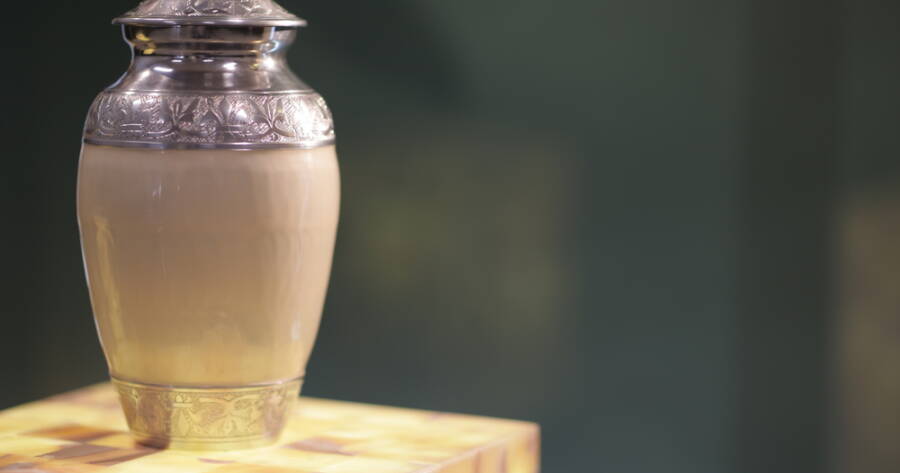Cremation is an increasingly popular choice for individuals and families planning end-of-life arrangements. However, this practice is often surrounded by myths and misunderstandings that can make decision-making more complicated. Whether you’re exploring options for yourself or a loved one, understanding cremation can provide clarity and peace of mind. This article delves into common myths, examines the facts, and answers frequently asked questions to help you make an informed decision about this important process.
Myths and Misunderstandings About Cremation
Cremation, while widely chosen, is often misunderstood. Addressing common myths can help dispel inaccuracies and provide clarity about what the process involves.
Myth 1: Cremation is Against Religious Practices
Many people believe cremation is universally opposed by religious organizations, but this isn’t entirely accurate. While some faiths, like Orthodox Judaism and Islam, traditionally prohibit cremation, others accept or even endorse it. For example, Hinduism incorporates cremation as part of its funeral rites, and many Christian denominations have no objection to the practice. It’s important to consult with your spiritual advisor or research your faith’s stance if religion is a factor in your decision.
Myth 2: Cremation Prevents Holding a Funeral or Memorial
Another misconception is that cremation limits opportunities for remembrance. In reality, cremation provides flexibility. You can hold a traditional funeral before cremation or plan a memorial service afterward. Cremated remains can also be incorporated into unique commemorative acts, such as scattering ceremonies, tree planting, or being incorporated into art.
Myth 3: Cremation Is Environmentally Harmless
Although cremation is often seen as a greener option compared to traditional burial, it’s not without an environmental impact. The process involves energy consumption and the release of carbon dioxide. However, alternatives like bio-cremation (alkaline hydrolysis) are emerging as eco-friendlier options. If minimizing your environmental footprint is a priority, it’s worth exploring these advancements.
Key Facts to Know About Cremation
Gaining a factual understanding of cremation can help individuals make more informed decisions. Below are some notable points to consider.
It’s a Growing Trend
In many countries, cremation rates are surpassing traditional burial. The reasons vary, including lower costs, flexibility in memorialization, and space conservation in urban areas. According to recent statistics, more than half of Americans now choose cremation, a number that continues to rise.
Cremation Costs Can Vary Widely
Cremation is often perceived as a cost-effective alternative to burial, but prices can differ significantly depending on services included. A direct cremation, which involves no viewing or ceremony, is generally the least expensive. However, adding services like embalming, a viewing, or an urn can raise the cost. It’s crucial to request a detailed price list from service providers to avoid unexpected expenses.
You Have Options for Ashes
Cremation provides numerous options for handling remains. Some families choose to keep ashes in an urn, while others scatter them in meaningful locations. Modern innovations include transforming ashes into diamonds, incorporating them into jewelry, or using them to grow coral reefs. The choice depends on personal preferences and any applicable legal considerations.
Common Questions About Cremation
Many people have practical and logistical questions about the cremation process. Here are answers to some of the most frequently asked queries.
Is Cremation Safe and Regulated?
Yes, cremation facilities are typically governed by strict regulations to ensure safety and respect for the deceased. In many areas, crematories undergo regular inspections, and staff are trained in handling remains appropriately. If you have concerns, you can inquire about a facility’s certifications or reviews to confirm their adherence to standards.
Can I Preplan My Cremation?
Absolutely. Many people choose to preplan their cremation to ensure their wishes are followed and to alleviate decision-making pressure on loved ones. Preplanning also allows you to lock in current prices and customize your arrangements, such as specifying the type of urn or the location for scattering ashes.
Are There Legal Restrictions on Scattering Ashes?
Yes, and they vary by location. Public parks, waterways, and private property may require permits or permission. In some cases, local laws dictate specific distances from structures or shorelines. It’s essential to research regulations in your area or consult with a cremation provider for guidance.
What Is the Cremation Process Like?
Cremation involves placing the deceased in a specialized chamber where high heat reduces the body to ashes and bone fragments. These remains are then processed into a finer consistency and returned to the family in a temporary container or urn. Families are typically not present during the process, though some facilities may accommodate viewing or witnessing requests.
How Do I Choose a Cremation Provider?
When selecting a provider, consider factors like reputation, transparency in pricing, and available services. Reading reviews or seeking recommendations from trusted sources can be helpful. You might also inquire about additional offerings, such as grief support or assistance with memorial planning.
Learn More Today!
Choosing cremation is a deeply personal decision that involves weighing various myths, facts, and practical considerations. By understanding the truth behind common misconceptions, exploring the many options available, and seeking answers to frequently asked questions, you can approach this choice with confidence and care.
Whether you opt for cremation due to cost, environmental concerns, or personal preference, preplanning and open communication with loved ones can ensure your wishes are honored. In the end, cremation offers a meaningful and flexible way to commemorate life.

